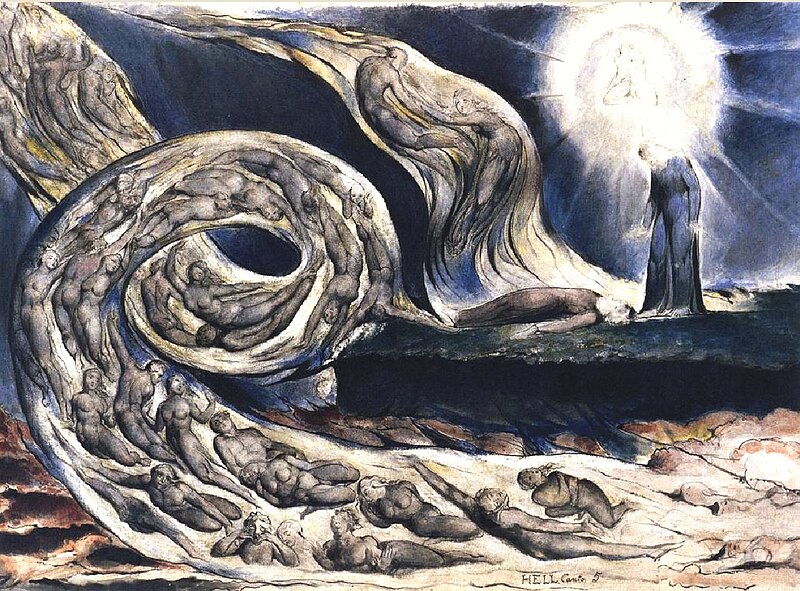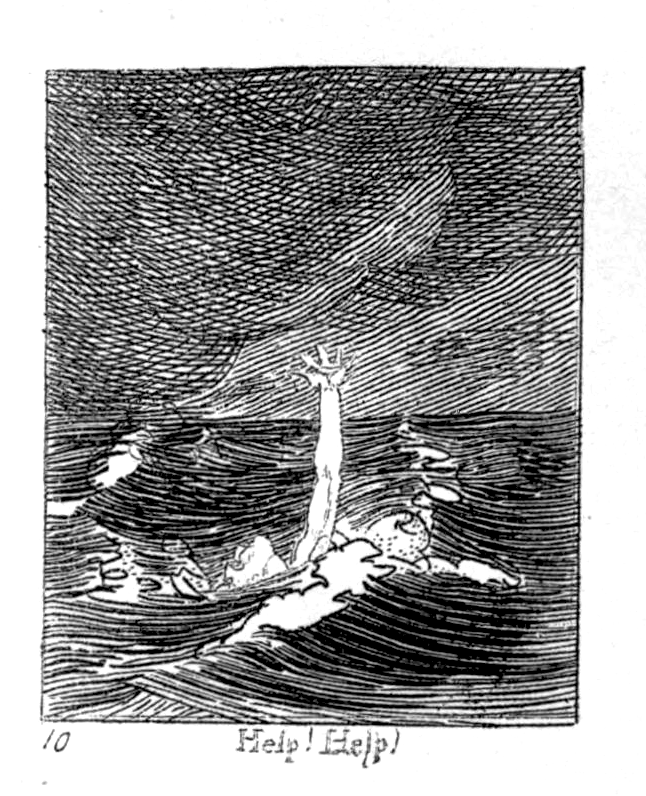Blake was in a strange mood when he wrote the beginning of Jerusalem. He had given up the main chance and returned from his pleasant bungalow near the Sea. He had accepted the fact that he would never please the public taste -- and in fact given up the desire to. He and Catherine would gracefully starve like thousands of other Londoners. He decided to be confrontational; he would not attempt to write for the 'public taste'; he would attempt rather to please God (How many of us put that first?).
He owned his enthusiasm and gave every evidence of intending to remain enthusiastic. In early 19th century culture that was a no, no , and most often used disparagingly in ours. Enthusiastic people were (and are) thought to be slightly lacking in reason, unbalanced if you will.
Blake as much as said "I'm going to be enthusiastic; if you don't like it, I'm sorry. Even worse than enthusiasm, Blake asked for our love; they didn't use that word seriously in his day, nor ours in ordinary conversation. "Will you love me?" Say that and people will give you a funny look; like are you crazy? In the preface to Jerusalem Blake wrote:
" To the PublicHe asked us to love him and his poem, but as Roger Easson points out (in Blake's Sublime Allegory; ), the Deists who made up the intelligentsia had no use for enthusiasm: "Jerusalem, by displaying in every line the heat of imagination, the violence of passion, and the actual confidence of divine communication, was a calculated affront to contemporary belief and taste."(page 311)
After my three years slumber on the banks of the Ocean, I
again display my Giant forms to the Public: My former Giants &
Fairies having reciev'd the highest reward possible: the
[love] and [friendship] of those with whom to
be connected, is to be [blessed]: I cannot doubt that
this more consolidated & extended Work, will be as kindly
recieved
The Enthusiasm of the following Poem, the Author hopes
[no Reader will think presumptuousness or arroganc[e] when he
is reminded that the Ancients acknowledge their love to their
Deities, to the full as Enthusiastically as I have who
Acknowledge mine for my Saviour and Lord, for they were wholly
absorb'd in their Gods. I also hope the Reader will
be with me, wholly One in Jesus our Lord, who is the God [of
Fire] and Lord [of Love] to whom the Ancients
look'd and saw his day afar off, with trembling & amazement.
The Spirit of Jesus is continual forgiveness of Sin: he who
waits to be righteous before he enters into the Saviours kingdom,
the Divine Body; will never enter there. I am perhaps the most
sinful of men! I pretend not to holiness! yet I pretend to love,
to see, to converse with daily, as man with man, & the more to
have an interest in the Friend of Sinners. Therefore
[Dear] Reader, [forgive] what you do not
approve, & [love] me for this energetic exertion of my
talent." (Erdman 145)
Plate 26 concludes Chapter One of Jerusalem; it contains four short lines, capitalized:
AS I MY ORDERD RACE HAVE RUN
JERUSALEM IS NAMED LIBERTY
AMONG THE SONS OF ALBION
(Erdman 171)
 Click on Plate One from Jerusalem, for a clearer picture. The above is taken from the Rosenfeld Collection of Rare Books at the Library of Congress.
Click on Plate One from Jerusalem, for a clearer picture. The above is taken from the Rosenfeld Collection of Rare Books at the Library of Congress.Roger Eason continues: "There are two classes of readers: the reader who is not offended by Blake's enthusiasm or his other literary offenses, or the reader who is offended and is incapable of the "continual forgiveness of sin"". The first of course receives spiritual nurture from 'Jerusalem' and the second nothing but frustration. "There's no middle ground" according to Roger.






 He was also commissioned by Linnel to do Illustrations
to The Book of Job. After great travail Job saw the
presence of God in the Whirlwind which is illustrated
at the beginning of this post.
He was also commissioned by Linnel to do Illustrations
to The Book of Job. After great travail Job saw the
presence of God in the Whirlwind which is illustrated
at the beginning of this post.






